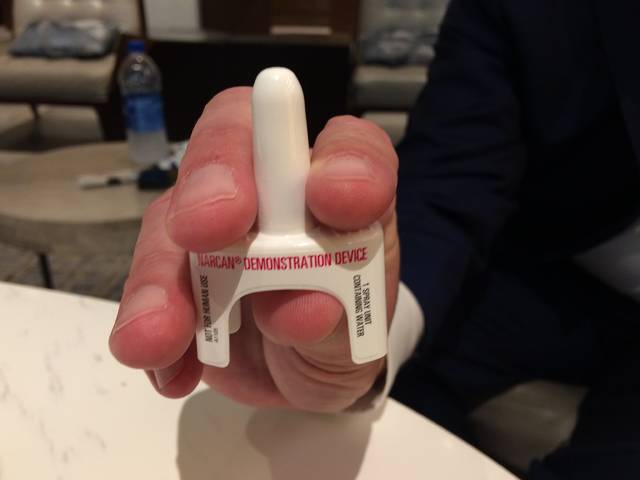People are alive today because of Narcan.
That is absolutely indisputable.
Narcan, the brand name for naloxone, is like a pharmacological blindfold. If someone has overdosed on a narcotic, a dose of Narcan can make the body and brain ignore the drugs. Pay no attention to that heroin. What heroin? There is no heroin here.
But Narcan doesn’t last as long as the increasingly potent drugs it counteracts. Fentanyl can demand repeated doses to prevent a death as the Narcan wanes and the narcotics take hold again.
Enter the University of Pittsburgh researchers — chemist Saadyah Averick and neurobiologist Benedict Kolber — who are working on a longer-lasting, extended release version of the lifeline that could stay active in the body for two days instead of an hour.
That is remarkable, and that is vital as newer, more potent drugs are developed for both legitimate medical uses and illicit consumption alike.
What we can’t do is mistake the antidote to the poison for an antidote to the problem.
More Narcan availability is clearly responsible for the downturn in overdose deaths. But while we are grateful for the numbers, we have to look at the reality of them. Nationwide, prescriptions for the drug have doubled, but fatal overdoses have fallen just 3%.
That means Narcan is saving lives, but it isn’t fighting addiction.
That fatality number could fall a lot further with a long-lasting form of Narcan, and that is fantastic.
What we still need is a long-lasting antidote to addiction. Without that, we are treating a symptom and not curing a disease.
We need the same kind of curiosity, innovation and problem-solving to go into fixing addiction that we put into pulling addicts back from an overdose. We need more people like Averick and Kolber working across disciplines to find solutions.
We need them so more people survive because they never had an overdose.








